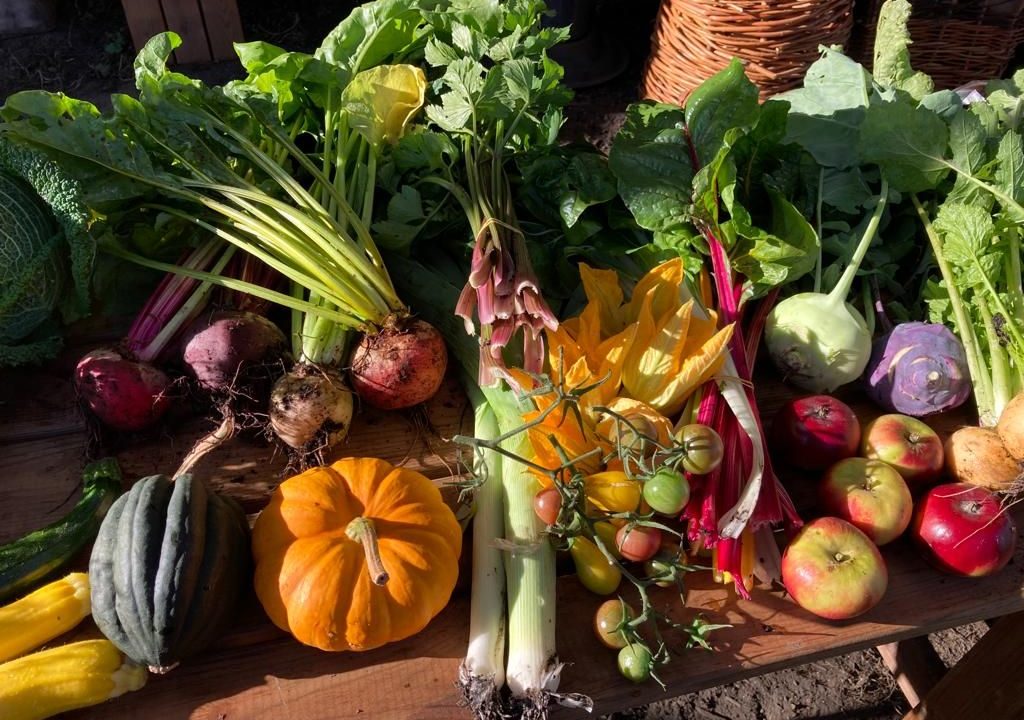What’s the issue?
Over the last 50 years, our food system has become dominated by a handful of corporate supermarket supply chains. While they have delivered cheap food to millions, this convenience has come at enormous cost; to the environment through the promotion of unsustainable farming practices and high food miles; to local economies and communities though decimation of local food and farming businesses; and to health through the promotion of cheap, highly processed, nutritionally poor foods. Meanwhile, the COVID-19 pandemic has exposed the fragility of supermarket supply chains in terms of their capacity to respond to systemic shocks, resulting in empty shelves and a spike in food insecurity.
What are we doing?
We’re advocating for local food systems which operate along shorter farmer-focussed supply chains as the solution to many of the above problems. We believe that this is the route to a fairer, more sustainable, and more resilient food system that is fit to meet the climate, environmental and public health challenges of our time.
To this end, our work involves:
- Developing practical learning resources for those engaged in local food production and short supply chains
- Peer-to-peer learning and information sharing sessions, you can find details of these by signing up to our LWA newsletter
- Research and report writing, such as our 2024 Growing the Local Food Sector report, and our 2021 Vocal for Local report
- Working with partners to carry out cross-sector research and develop a collective vision and action plan for the short supply chains sector. You can read more about the need for a collective approach in this blog post
- Campaigning for policies that support local food systems and short supply chains.

Local Food Plan
Since 2023 we have been working with four project partners to co-develop the Local Food Plan. Project partners include the Sustainable Food Trust, Pasture for Life, the Food and Farming Countryside Commission, and Sustain’s Local Food Retail Project.
In the first phase of the project we developed a collective vision. As part of that work we interviewed different people from across the UK and across the supply chain to analyse what the main issues are preventing the local food sector from growing and to explore where potential solutions might lie. You can read about this work in our report ‘Growing the Local Food Sector: A snapshot of barriers and solutions’.
During the second phase, until the end of March 2025, we developed a sector-wide action plan to help us achieve the growth we’d like to see, based on a series of workshops in Autumn 2024.
You can find the finished plan here and find out more on the Local Food Plan website.
Previous work (2021-2022)
Vocal for Local Report (2021)
As our submission to the National Food Strategy for England, we wrote the Vocal for Local report which sets out where we think the food system should be heading and what the advantages are of a short supply chains approach.
You can read the report here.
Local Food System Resources & Learning Opportunities
We have created a number of resources for existing farms and new entrants to aid the move towards shorter supply chain selling. We also organised a series of webinars and on-farm visits so that farmers could learn directly from each other.
You can find the guides and links to some of the webinars on the Business Support page.
Building Better Food Systems Conference 2022
In 2022, the Resilient Local Food Systems project hosted the Building Better Food Systems Conference, funded by the European project COACH.
This event aimed to bring together actors from across the short supply chain sector, including; producers, distributors, policy-makers, consumers and everyone in between. Together, we shared information and worked on co-designs to identify challenges, opportunities and potential future solutions for the sector.
Contact
If you’d like to find out more about the Local Food Plan please contact the Campaigns Team at Sustain on info@localfoodplan.org
For more information on the work that the LWA is doing to promote local food systems please contact our Campaign Coordinator on jyoti.fenandes@landworkersalliance.org.uk
Resources


